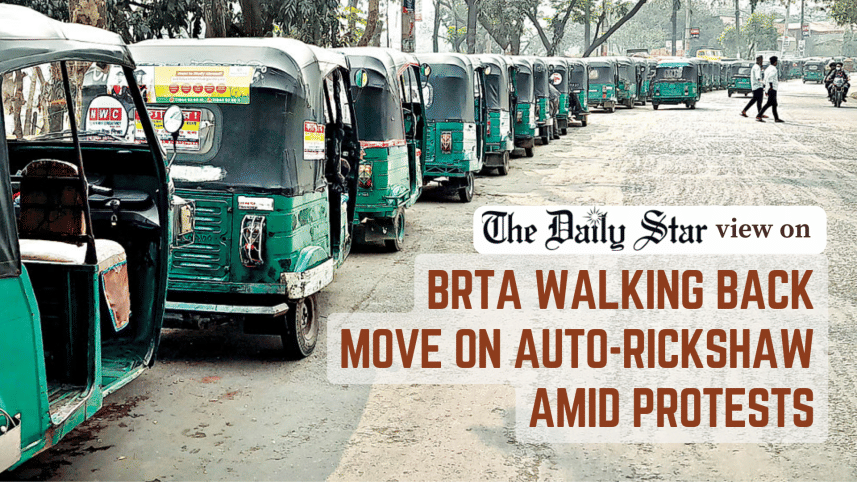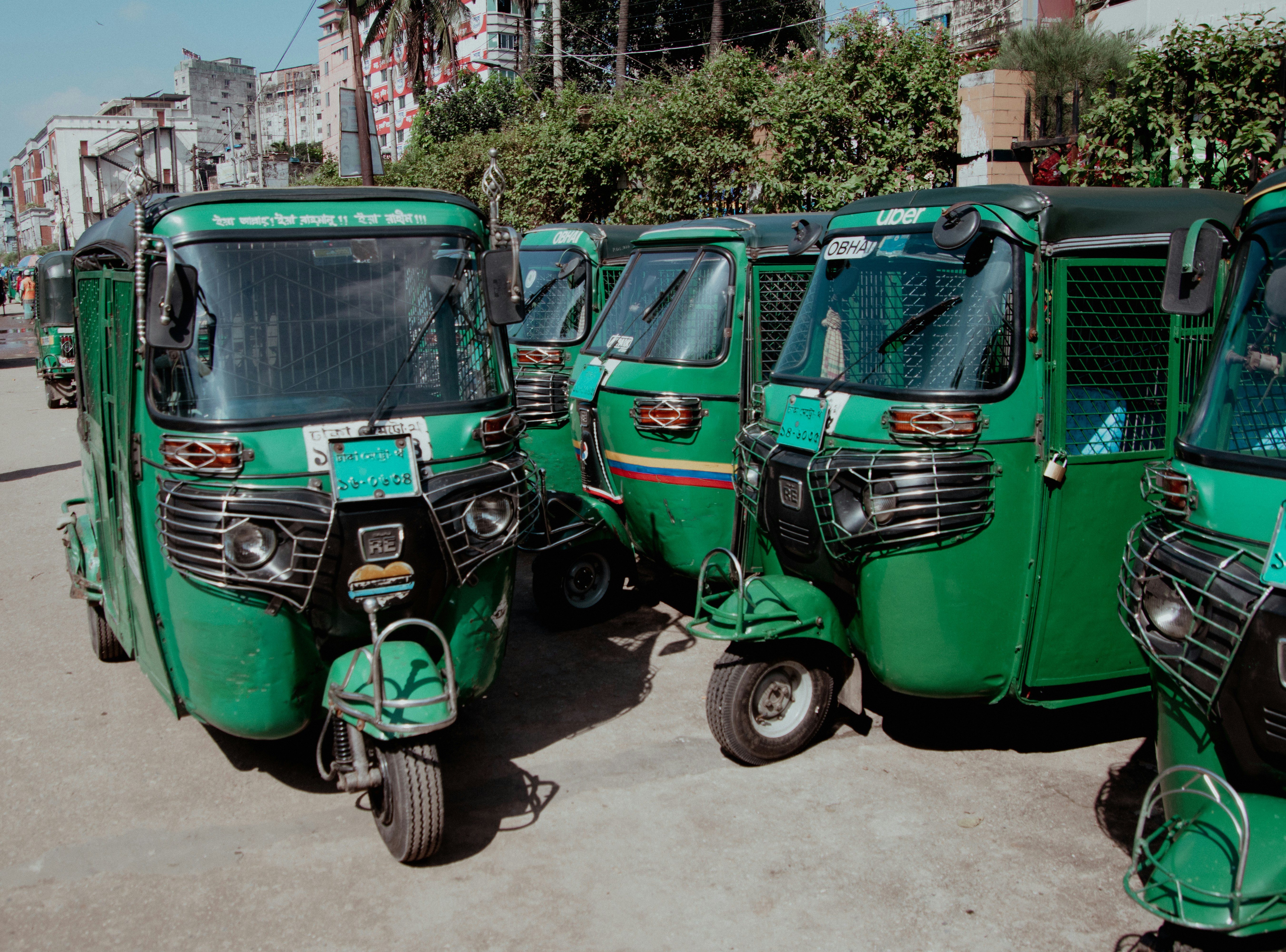Resolve the CNG auto-rickshaw fare crisis

By now, this has become a pattern: a long-festering grievance comes to the fore (whether or not there is an immediate trigger), protesters in large groups block streets, public sufferings mount, and the authorities then cave under pressure—retreating from a decision or acquiescing to protesters' demands. We have seen this cycle recur across various sectors, particularly education, over the last six months. The helplessness of the interim government in the face of such pressure tactics was once again on display when the Bangladesh Road Transport Authority (BRTA) withdrew its decision to take legal action against the drivers of CNG-run auto-rickshaws disregarding government-set metered fares, after the latter blocked key city streets and even besieged BRTA headquarters on Sunday.
The CNG sector has long been fraught with various issues including fare disputes, conflicts between owners and drivers, and illegal operations. According to our report, the last fare revision was in 2015—which also set a Tk 900 daily deposit payable to owners—but neither drivers nor owners adhered to these rates, each blaming the other for overcharging. A 2022 attempt to revise fares and deposits also failed due to disagreements between them. Following the political shift in August, conflicting demands, and policy responses, emerged, leading to the current debacle.
In this particular instance, however, what worsened an already bad optics of governance is how hasty and poorly planned the decision was in the first place. According to a report by this daily, the BRTA attempted to enforce a fare system for CNG-run auto-rickshaws that was set nine years ago, without any review or consultation whatsoever. The CNG sector has long been fraught with various issues including fare disputes, conflicts between owners and drivers, and illegal operations. According to our report, the last fare revision was in 2015—which also set a Tk 900 daily deposit payable to owners—but neither drivers nor owners adhered to these rates, each blaming the other for overcharging. A 2022 attempt to revise fares and deposits also failed due to disagreements between them. Following the political shift in August, conflicting demands, and policy responses, emerged, leading to the current debacle.
The question is, why would BRTA even try to enforce an outdated system instead of revising fares and deposits in consultation with the stakeholders? Drivers argue that owners currently charge between Tk 1,200 and Tk 1,600—far above the government-set deposit rate—while prices of essentials have also risen significantly, forcing them to overcharge passengers. Owners also cite inflation and rising gas prices as reasons for not abiding by the fixed deposit rate. While it is absolutely unacceptable that passengers remain at the mercy of drivers, and by extension, the owners, the lack of enforcement—or rather, enforceable decisions—on the part of the government is also to blame. This whole episode only trivialises the government's decision-making process and enforcement capacity as well as the welfare of passengers, who are having to pay the price for its failures.
While it is absolutely unacceptable that passengers remain at the mercy of drivers, and by extension, the owners, the lack of enforcement—or rather, enforceable decisions—on the part of the government is also to blame. This whole episode only trivialises the government's decision-making process and enforcement capacity as well as the welfare of passengers, who are having to pay the price for its failures.
The fact is, overcharging passengers beyond metered fares and overcharging drivers beyond fixed deposit rates are both punishable under the Road Transport Act 2018. There can be no going around this legal obligation. However, the time has come to revise these rates in a manner that reflects present economic realities as well as passenger expectations—something the BRTA must do without delay. Resolving this issue judiciously is essential not only to establish discipline in this sector but also to prevent future disruptions.



 For all latest news, follow The Daily Star's Google News channel.
For all latest news, follow The Daily Star's Google News channel. 
Comments